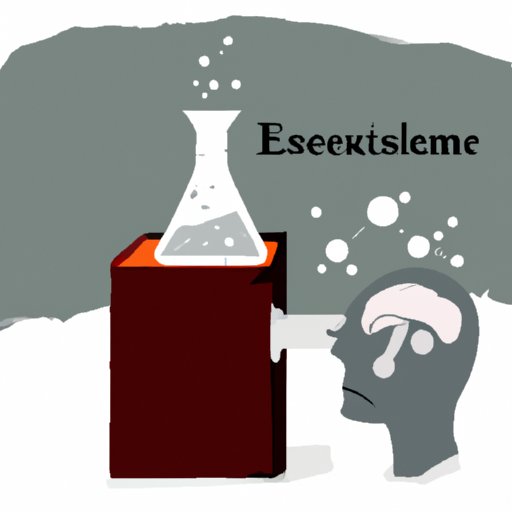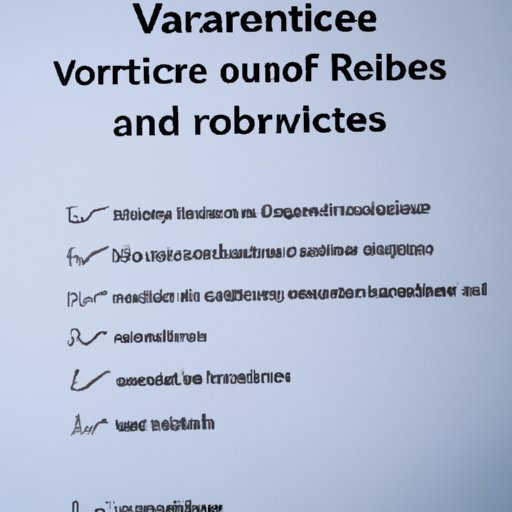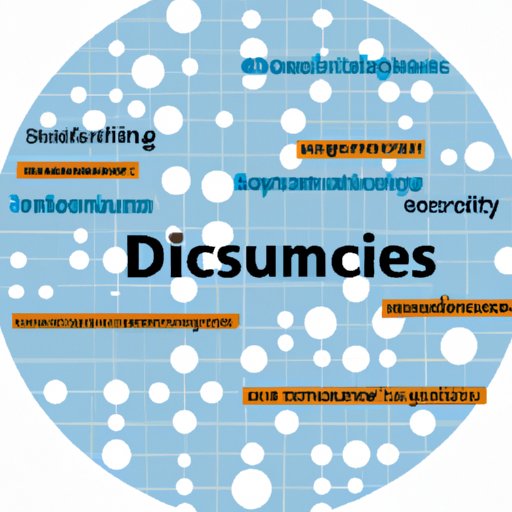Introduction
Science is a powerful tool for understanding the world. Its methods are designed to uncover facts, make predictions, and form theories that can explain complex phenomena. However, while it is an invaluable resource for understanding many aspects of life, science also has its limitations. This article will explore what these limitations are and how they affect our ability to understand the world around us.

Exploring the Boundaries of What Science Can and Cannot Explain
At its core, science is based on the acquisition of knowledge through observation and experimentation. It relies on data to provide evidence for theories and hypotheses. This means that, when it comes to understanding the world, science is limited by the quality and quantity of data available. While there is much we can learn from existing data, there are certain areas that remain beyond the reach of science.

Analyzing the Limitations of Scientific Knowledge
One of the major limitations of science is the inadequacy of data. Even with advances in technology, scientists are still unable to observe or measure some aspects of the universe. As a result, there are gaps in our knowledge that cannot be filled by existing data. This can lead to incomplete or inaccurate theories and explanations.
Another limitation of scientific knowledge is the limited range of explanations available. Scientists often rely on theories that are based on limited data sets or assumptions. These theories may not be able to account for all aspects of a phenomenon. In addition, they may be too narrow to explain the complexity of the real world.
Examining the Impact of Bias in Scientific Studies
Bias is another factor that can limit the accuracy of scientific knowledge. Bias can arise from a variety of sources, including the researcher’s own beliefs, the funding source of the study, or the way in which data is collected or interpreted. Bias can lead to distorted results, leading to incorrect conclusions.
In addition, bias can lead to selective reporting of results, where only those that support a particular viewpoint are highlighted. This can lead to false impressions about the accuracy of a theory or the validity of a hypothesis. In order to ensure accuracy, it is important to consider all sources of bias when interpreting scientific studies.
Investigating the Complexity of Interpreting Scientific Evidence
Interpreting scientific evidence can be a complex process. The results of studies may be ambiguous, making it difficult to draw definitive conclusions. In some cases, the results may not be clear-cut and the interpretation of data can depend on the researcher’s perspective. This can lead to different interpretations of the same data, making it hard to reach consensus.
In addition, establishing causation from scientific evidence can be challenging. While correlations can be identified, it is difficult to prove that one factor causes another. This can lead to misinterpretations of data, resulting in inaccurate conclusions.

Understanding the Role of Values in Shaping Scientific Research
Values play an important role in shaping scientific research. Researchers may be influenced by their own ideologies, which can lead to biased interpretations of data. Ideology can also affect the types of questions asked and the focus of research.
Ethics also play a role in scientific research. Ethical standards dictate how research should be conducted and guide researchers in their decision making. This ensures that research is conducted in a responsible manner and protects the rights of participants.
Conclusion
Science is an invaluable tool for understanding the world, but it does have its limitations. These include the inadequacy of data, the potential for bias, and the difficulty of interpreting evidence. In addition, values can influence the direction of scientific research. By being aware of these limitations, we can more accurately interpret scientific knowledge and use it to better understand the world around us.
(Note: Is this article not meeting your expectations? Do you have knowledge or insights to share? Unlock new opportunities and expand your reach by joining our authors team. Click Registration to join us and share your expertise with our readers.)
